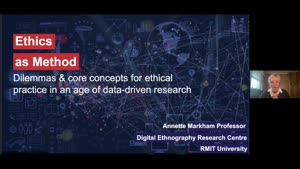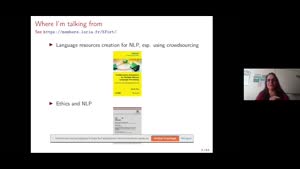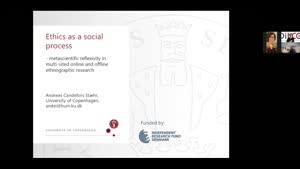Ethics as a social process – metascientific reflexivity in multi-sited online and offline ethnographic research (Methods Day 2021) - Andreas Candefors Stæhr - University of Hamburg
- Lecture2Go
- Catalog
- F.5 - Geisteswissenschaften
- Sprache, Literatur, Medien (SLM I + II)
- Digital language variation in context (DiLCo)
Catalog
2566 Views
08.10.2021
Ethics as a social process – metascientific reflexivity in multi-sited online and offline ethnographic research (Methods Day 2021)
In this talk, Andreas Candefors Stæhr addresses the topic of ethics in multi-sited online and offline ethnographic research. He approaches ethics as a social process that unfolds over time, which can be studied by paying attention to both researchers and participants’ metascientific reflections. In the talk, he deals with ethical dilemmas related to different stages of the research process; i.e. from the initiation of the ethnographic fieldwork to the analysis and final publication. Firstly, he focusses on processes of gaining informed consent and negotiating access to participants and field sites. Secondly, he addresses the construction and negotiation of social relations and field roles in face-to-face and online participant observation, for instance, how researchers deal with uncertainty, conflicting interests and social tensions in the field. Finally, he sheds light on the ethical aspects associated with the representation of the participants after the fieldwork; e.g. in the process of data selection and during the analysis.
Andreas Candefors Stæhr is Associate Professor at the University of Copenhagen. His research focuses on the social and communicative functions of social media in people’s everyday lives, with particular attention to the topics of family socialization, sociolinguistic normativity and the intersections of digitally mediated and face-to-face modes of communication. He is currently the PI of the collaborative research project SoMeFamily (Language and social media in the family) and he has published his work in journals such as Language & Communication, Pragmatics and Society and Discourse, Context & Media.
DiLCo (‘Digital language variation in context’) is a 3-year international research network initiated in 2021 at the University of Hamburg. The network brings together researchers from Europe and USA with expertise in computational, interactional, and ethnographic approaches to digital language and linguistics. It aims to provide a platform for the development of interdisciplinary ideas in digital language and communication research, and for early-career capacity building.
---
DiLCo (‘Digital language variation in context’) is a 3-year international research network initiated in 2021 at the University of Hamburg. The network brings together researchers from Europe and USA with expertise in computational, interactional, and ethnographic approaches to digital language and linguistics. It aims to provide a platform for the development of interdisciplinary ideas in digital language and communication research, and for early-career capacity building.
---
DiLCo (‘Digital language variation in context’) is a 3-year international research network initiated in 2021 at the University of Hamburg. The network brings together researchers from Europe and USA with expertise in computational, interactional, and ethnographic approaches to digital language and linguistics. It aims to provide a platform for the development of interdisciplinary ideas in digital language and communication research, and for early-career capacity building.
Technical support
Please click on the link bellow and then fill out the required fields to contact our Support Team!
RRZ Support Link

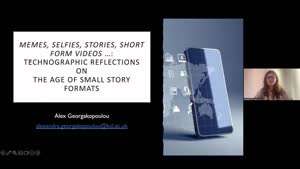
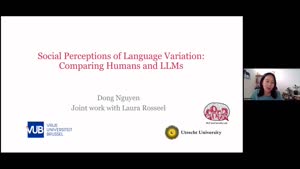
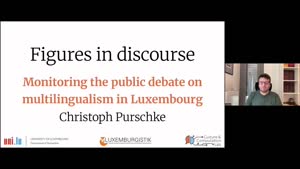
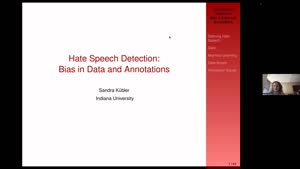
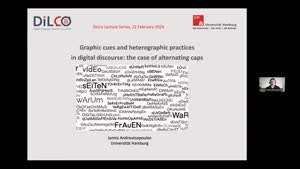
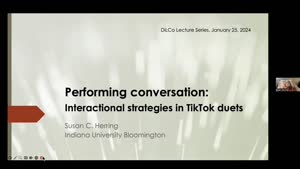
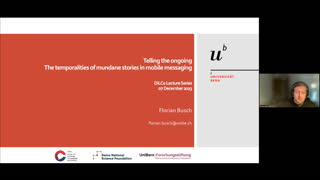
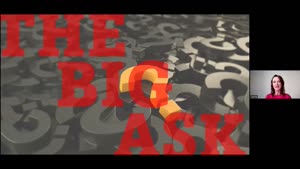
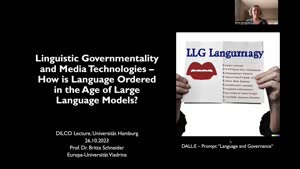
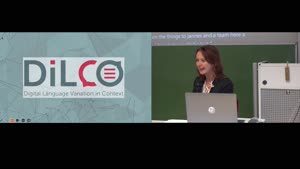
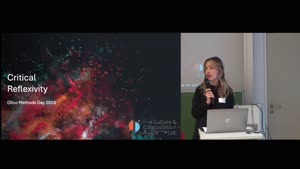
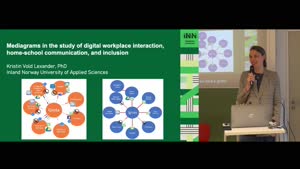
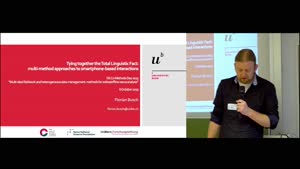
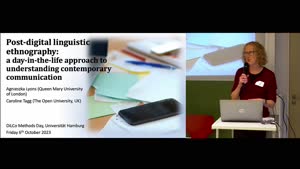
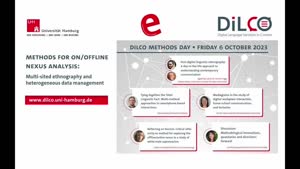
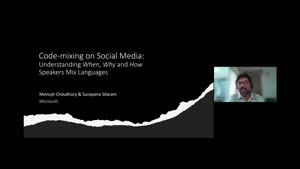
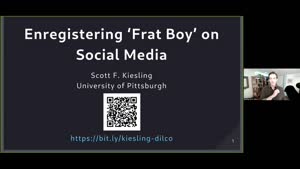
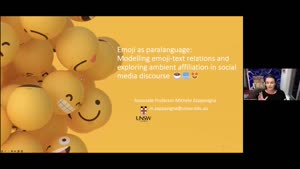
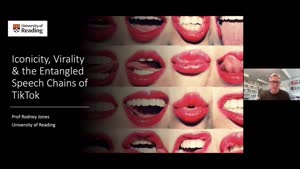
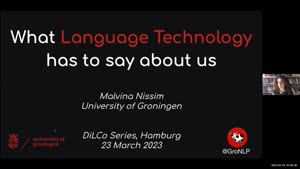
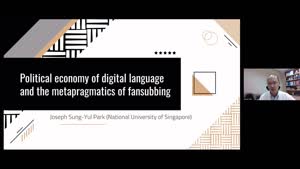
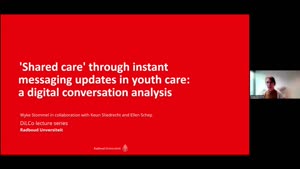
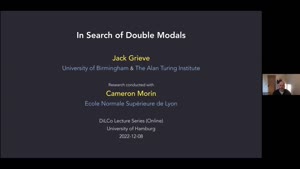
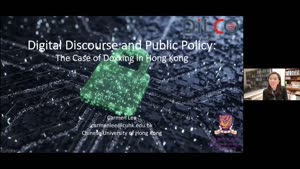
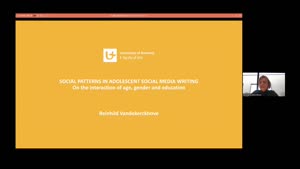
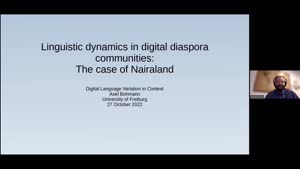
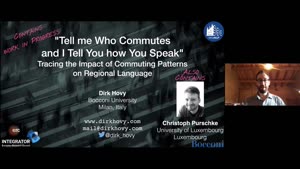
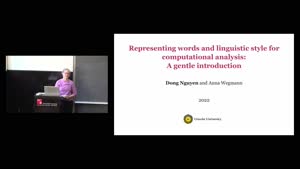
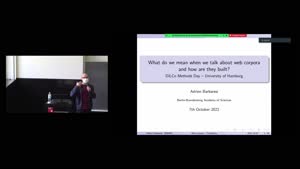
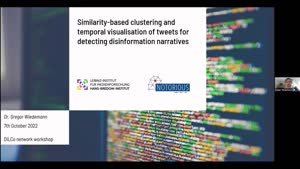
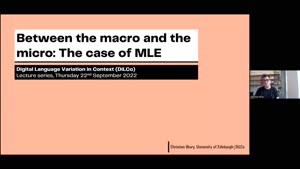
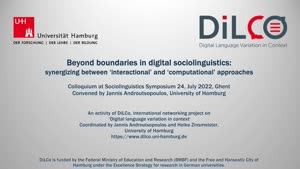
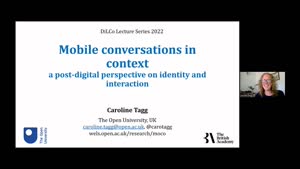
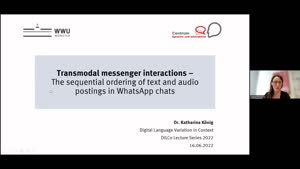
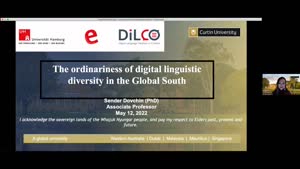
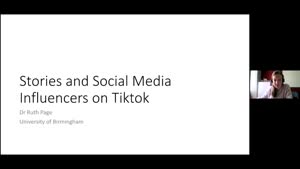
![Thumbnail - Graphic Prosody and political discourse on Greek Reddit [Presentation in Greek]](https://lecture2go.uni-hamburg.de/images/00.000_video-61074_2022-03-30_18-30_m.jpg?lastmodified=1663761108652)
